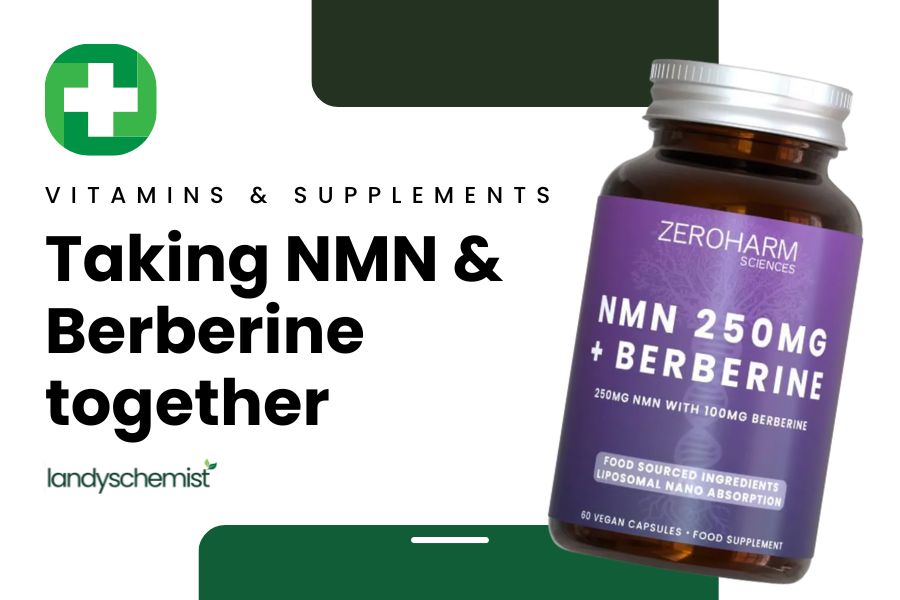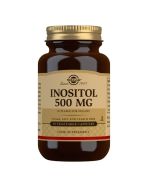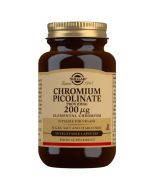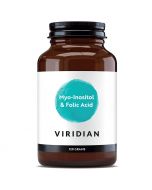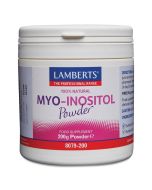
Chromium for PCOS
Chromium is an essential mineral that plays a key role in insulin and glucose metabolism, and the breakdown of carbohydrates and fats.
The functions of chromium in the body have been studied for its potential role in regulating high blood sugar, insulin resistance, and even hormone balance in women with polycystic ovary syndrome (PCOS), such as the reduction in testosterone levels.
In this blog we explore how effective chromium is in comparison to other popular alternative treatments such as inositol and berberine for PCOS.

What does chromium do for a woman who has PCOS?
For women with PCOS, chromium plays a beneficial role primarily through its impact on insulin sensitivity. PCOS is often associated with insulin resistance, a condition where the body's cells do not respond effectively to insulin, leading to high blood sugar and insulin levels. These elevated insulin levels can lead to hormonal imbalances, including increased androgen production like testosterone, which contributes to PCOS symptoms such as weight gain, irregular menstrual cycles, acne, and hirsutism (male-pattern hair growth).
Therefore, as chromium plays a role in enhancing insulin activity, it may help to stabilise blood sugar levels and potentially reduce insulin and androgen levels, thus mitigating some of the hormonal symptoms of PCOS. This makes chromium a focus of interest for management of PCOS.
Does chromium support PCOS?
Chromium has been researched as a potential treatment in mitigating symptoms of PCOS. Here are the benefits you can expect with chromium supplementation based on it’s efficacy in clinical studies:
Testosterone levels:
A systematic review and meta-analysis of chromium supplementation in women found that chromium picolinate supplementation was associated with lower free testosterone levels in women with PCOS [1]. This suggests that chromium picolinate could reduce symptoms associated with high testosterone levels in women such as hirsutism and acne although further research is needed.
Insulin Resistance
Chromium is an important factor in insulin activity, with studies highlighting lower levels of chromium in individuals with conditions impacting metabolic health such as type 2 diabetes [2]. This leads to the case of whether it could potentially support women with PCOS as insulin resistance is a common feature of the condition. Clinical trials have looked into the efficacy of chromium in improving insulin activity in patients with PCOS, with positive outcomes of lowered insulin resistance and improved insulin metabolism and lipid profiles [3, 4].
However, clinical research into chromium, compared berberine and inositol supplementation for PCOS is scarce and needs more investigation to properly establish its efficacy.
Cardiovascular health
Women with PCOS may be twice as likely to experience some sort of cardiovascular problems compared to others [5]. Observational studies have pointed to reduced chromium levels in cardiac patients, leading to a discussion on whether increasing chromium intake could minimise the risk of cardiovascular diseases (CVDs)[6]. A study found that chromium supplements might help to improve triglycerides (TG) and total cholesterol (TC), while also boosting the levels of "good" cholesterol called HDL[7]. However, when it came to "bad" cholesterol, known as LDL, chromium did not have much effect.
What needs more research?
Weight loss claims
There is some discussion on whether chromium can support weight management in women with PCOS because of its role in regulating insulin activity. Although insulin resistance has been linked to weight gain8, there is a lack of evidence to support the idea that chromium's function in insulin activity can reduce BMI (body mass index). Furthermore, when compared to other PCOS treatments such as berberine or inositol, chromium is overshadowed. Find natural supplements that may support PCOS weight loss here.
Conclusion
While chromium supplementation shows promise in addressing certain aspects of PCOS, such as improving insulin sensitivity and potentially lowering testosterone levels, its overall efficacy as a treatment remains uncertain. Studies indicate that chromium may modestly impact lipid profiles and insulin resistance in women with PCOS, but its effects on weight management and cardiovascular health are less clear. Moreover, berberine and inositol have shown more substantial evidence supporting their efficacy in managing various symptoms of PCOS, including insulin resistance, hormone balance, menstrual irregularities, and even weight loss. Therefore, while chromium supplementation may offer some benefits for women with PCOS, further research is needed to better understand its role and potential in PCOS management.
References
- https://pubmed.ncbi.nlm.nih.gov/28595797/
- https://pubmed.ncbi.nlm.nih.gov/15208835/
- https://pubmed.ncbi.nlm.nih.gov/28929602/
- https://pubmed.ncbi.nlm.nih.gov/26279073/
- https://www.hopkinsmedicine.org/health/conditions-and-diseases/polycystic-ovarian-syndrome-how-your-ovaries-can-affect-your-heart
- https://link.springer.com/article/10.1007/s12011-019-01783-7
- https://www.sciencedirect.com/science/article/abs/pii/S0946672X21000316
- https://www.ncbi.nlm.nih.gov/pmc/articles/PMC7553667/
Disclaimer
This article is for informational purposes only and is not a substitute for medical advice. Consult your doctor or healthcare provider before starting any supplements, treatments, or remedies. Ensure a varied and balanced diet and a healthy lifestyle before considering supplements. Supplements should not replace a balanced diet.
By Rhysa Phommachanh



